Creative thinking skills=
the ability for children to shape their future and live rich and meaningful lives
Creative thinking skills are not only the ability to come up with novel ideas, but also to analyze complex problems from multiple perspectives, seeing through to their essence, and deriving effective and sustainable solutions.
The joy of giving form to one’s ideas enhances self-esteem and leads to personal well-being.
The creative process is carried out through collaboration with others, and students are encouraged to be open to diverse perspectives and to develop the ability to work collaboratively and communicate with other students.
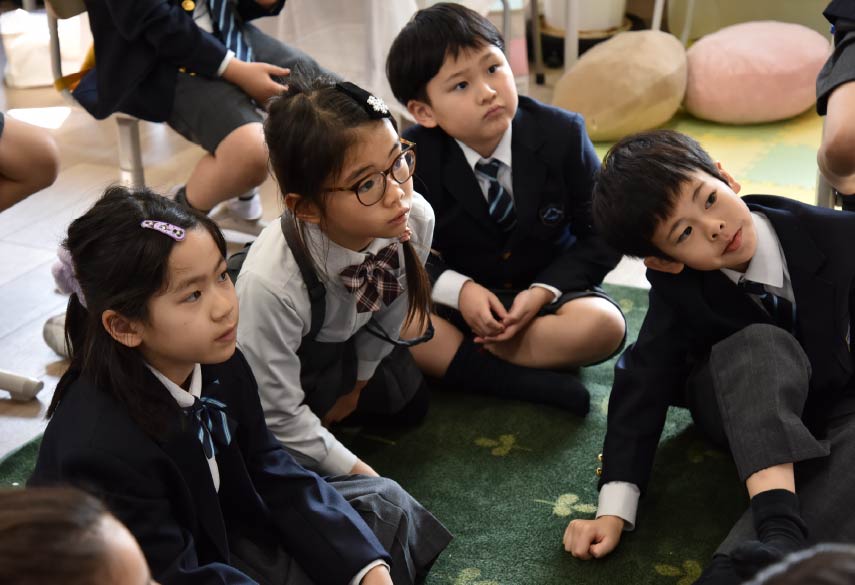
Essential elements in fostering creative thinking skills
An environment that stimulates intellectual curiosity
We continually stimulate students’ intellectual curiosity through classroom decorations, creative teaching materials, and the presentation of interesting topics.
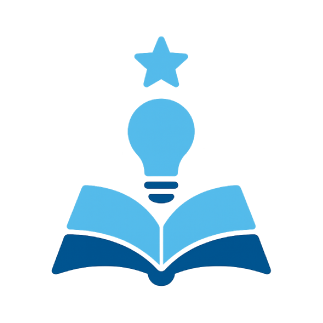
Dialogue and collaboration
Through active dialogue among students and between students and teachers, students are exposed to a variety of perspectives and deepen their thinking.
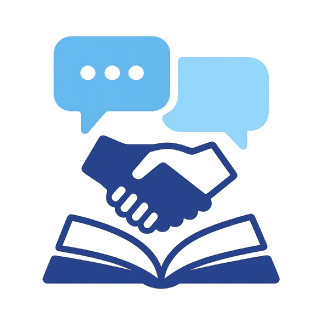
Intrinsic motivation
It encourages learning based on students’ interests and concerns, not just evaluation and competition, and increases intrinsic motivation.

Opportunities for reflection
By reflecting on the learning process and its results, students become aware of their thought processes, which leads to improvements.

Utilization of ICT
Effective use of ICT supports creative activities by collecting information, supporting the generation of ideas, and diversifying methods of expression.

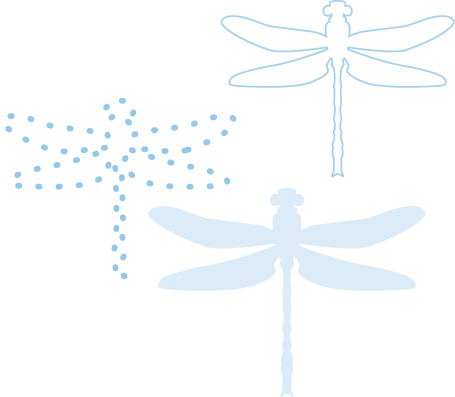
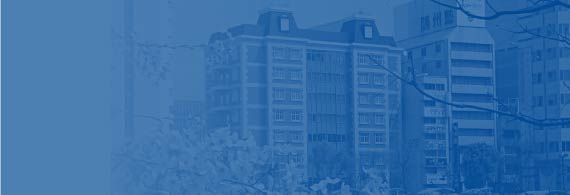
Elementary School
A place for rich experiences and dialogue that fosters free thinking
Stimulate children’s curiosity and spirit of inquiry, and encourage free ideas and expression.
Activities that utilize all five senses / Question-oriented lessons / An atmosphere encourages free thinking / Learning through play / Interaction with picture books will be important.
Through these elements, we provide support for children to think independently, ask questions, and appreciate diverse ways of thinking, while fostering the seeds of creativity.


Middle School
A combination of knowledge, skills acquisition, and ideas
While acquiring fundamental knowledge and skills, students will develop the ability to utilize them to generate new ideas.
Students relate knowledge through cross-curricular learning, are exposed to diverse opinions through group work and discussion, and work independently to solve problems through problem-based learning (PBL).
The programme also fosters information literacy and the ability to materialize and communicate ideas through a variety of expressive methods.


High School
Deepening specialised knowledge and creative ideas
Students will gain in-depth knowledge of specialised fields and cultivate the ability to generate original ideas that are not bound by existing knowledge or frameworks.
Through deep inquiry-based learning that is tailored to students’ interests, we cultivate the ability to discover, analyze, and generate creative solutions to problems.
Furthermore, students broaden their perspectives and develop practical creativity through encounters with diverse values, creativity-aware learning in specialised fields, and collaborating with society.
By strengthening self-expression and communication skills, we aim to cultivate the ability to communicate one’s thoughts and ideas to society effectively.

Our goal is to help students develop the creative thinking skills necessary to be active in society through in-depth specialized knowledge, independent inquiry, diverse perspectives, connections with society, and enhanced expressive abilities.
Fostering creative thinking skills requires continuous efforts from elementary school through high school, and school-wide awareness is essential.
Taking into account the characteristics of each stage, we nurture creativity that enables students to learn independently and open up their future.
